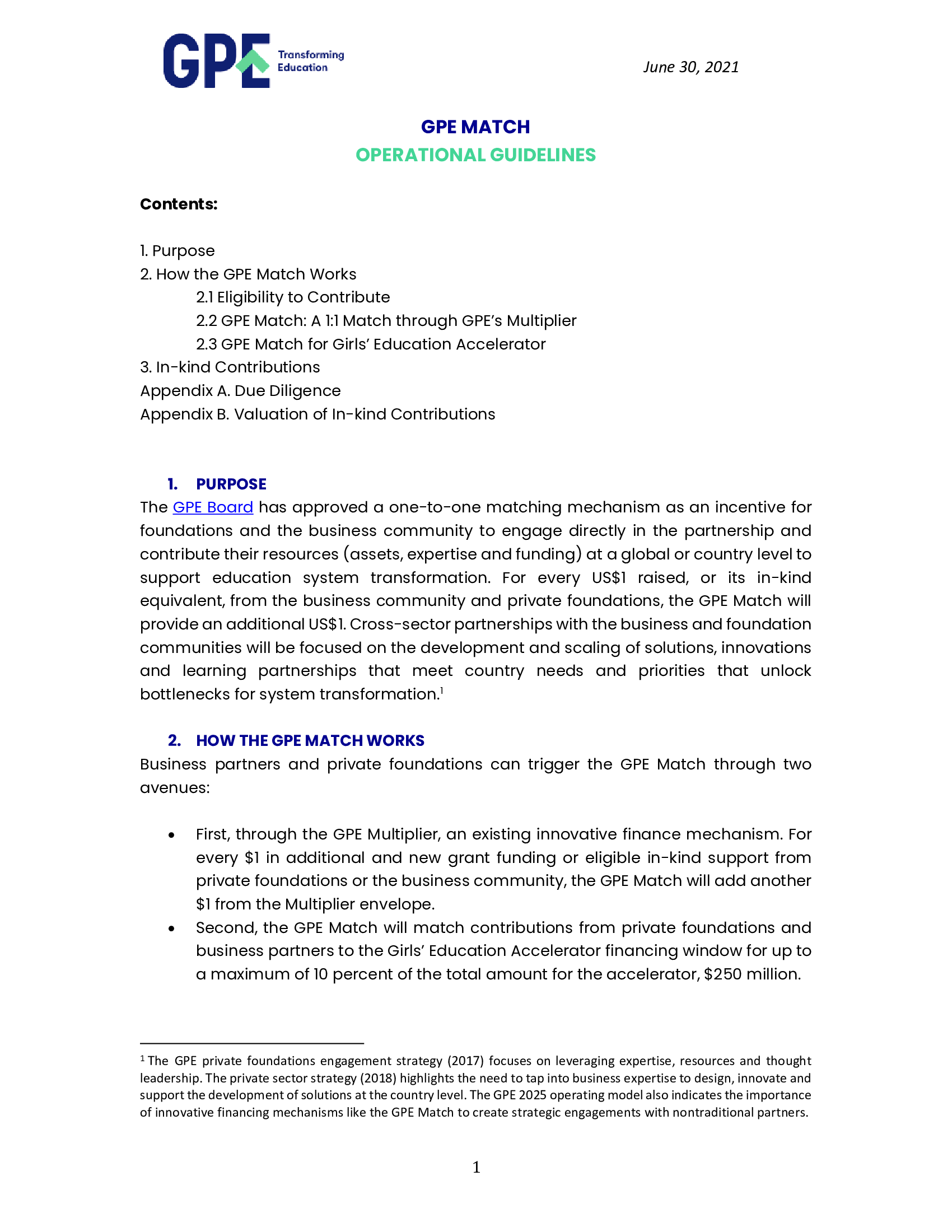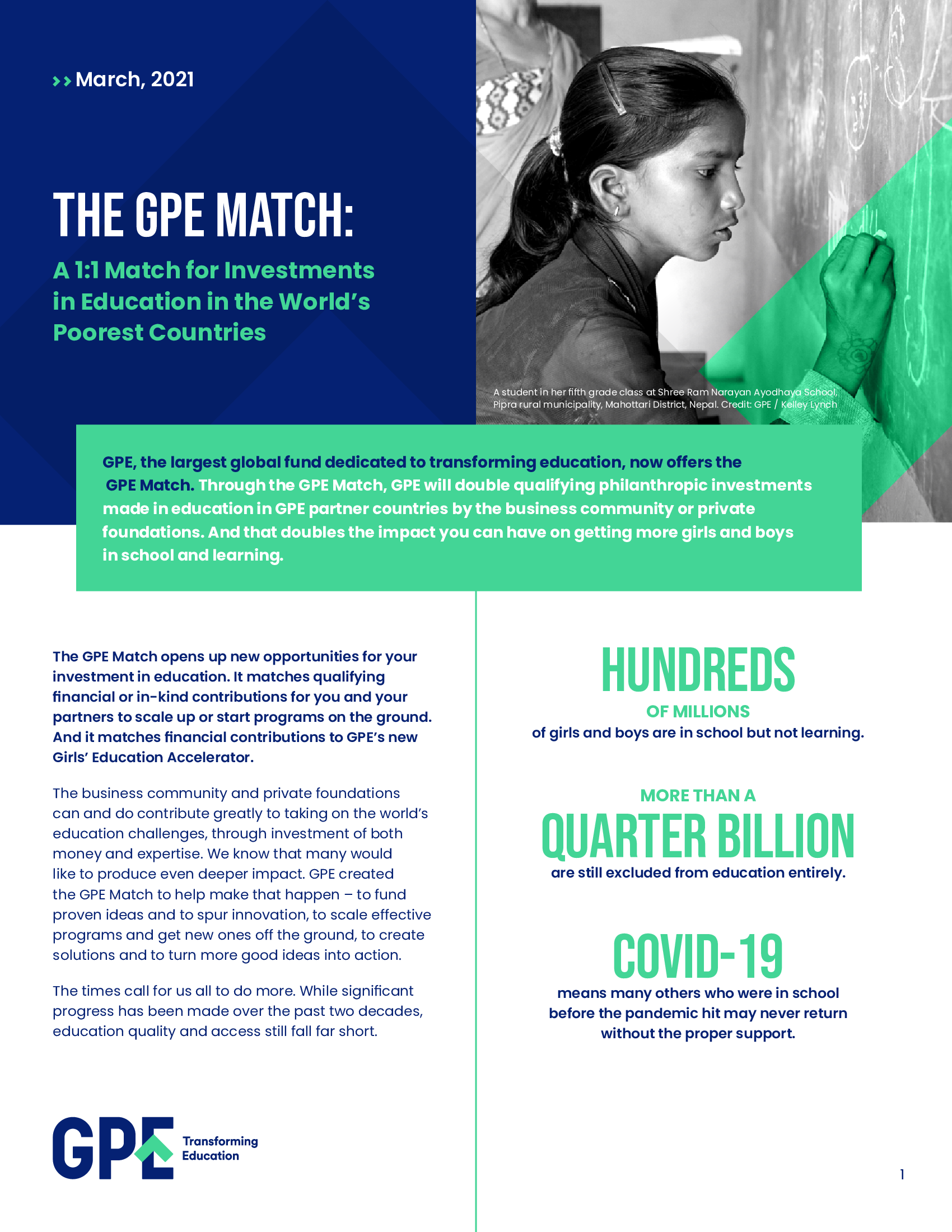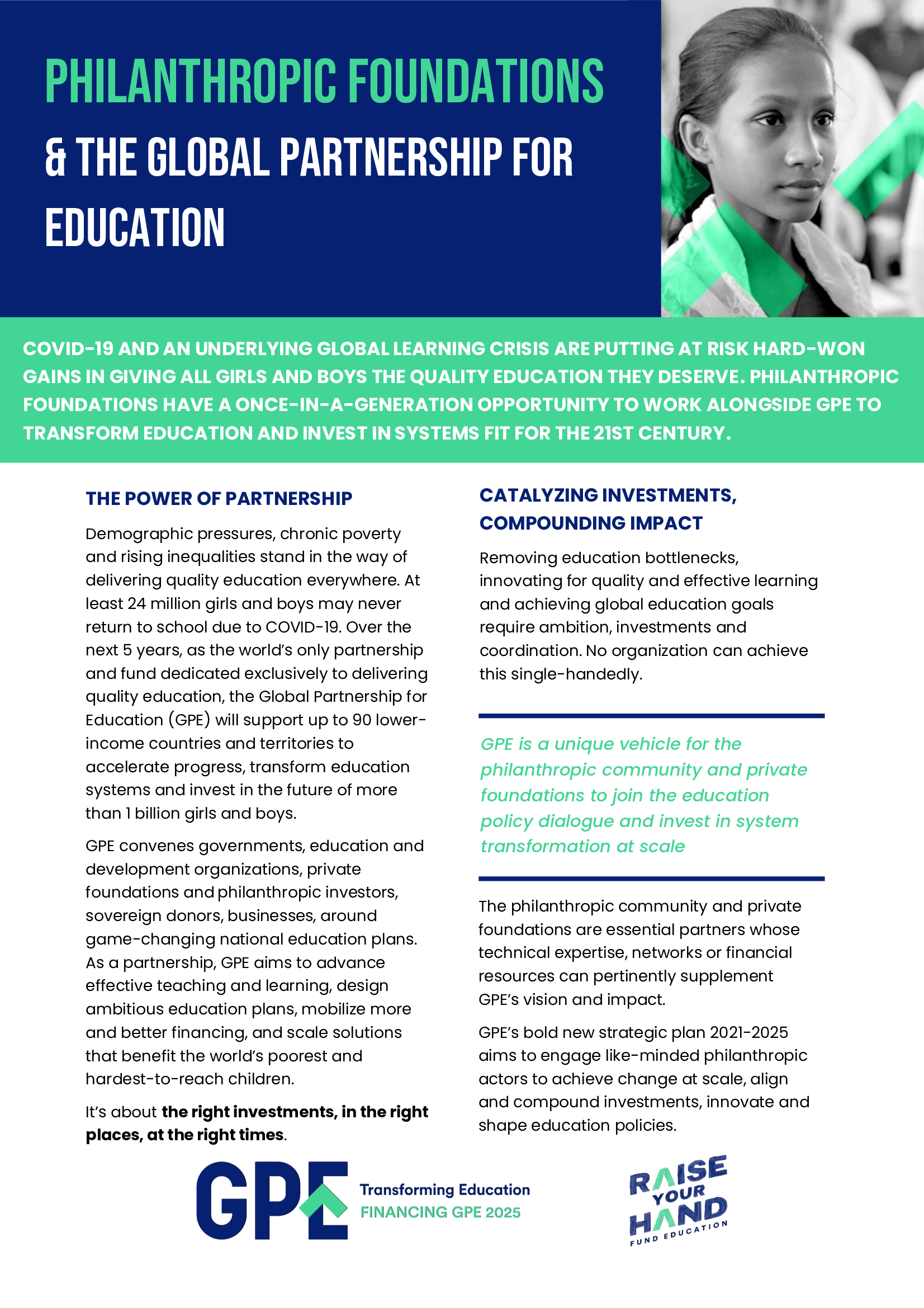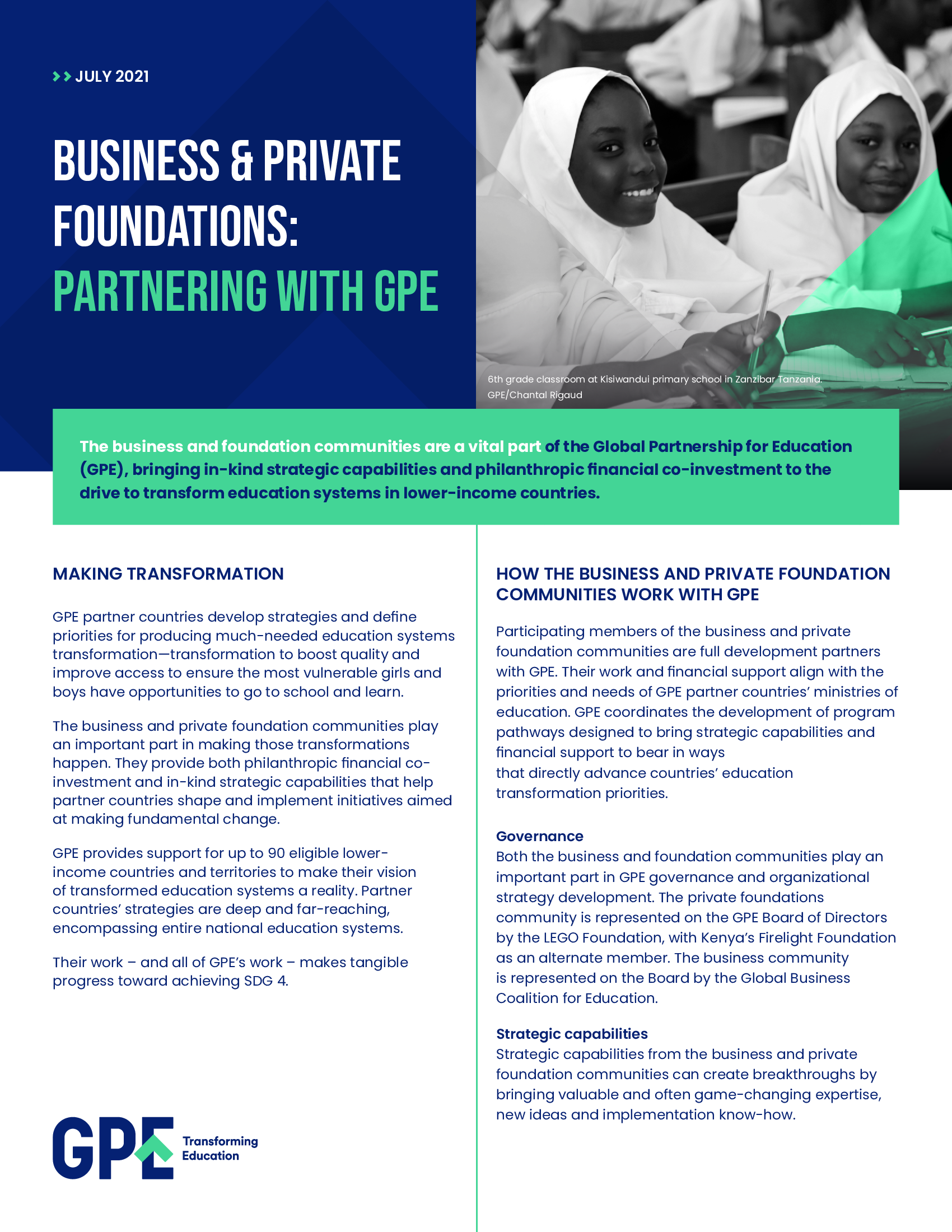Objectives
GPE's engagement with philanthropic foundations is framed by GPE 2020 and the partnership's Financing and Funding Framework. In its work with foundations, GPE aims to:
- Explore innovative ways to strengthen the education sector.
- Involve foundations in national and global policy cycles and processes.
- Increase foundations' involvement in scaling up pilots in key areas, including early childhood development, learning assessments, gender-responsive education sector planning, and disaster risk financing.
- Deepen the understanding of foundations' interests, experiences, technical expertise, and advocacy within the global education aid architecture.
- Co-construct a strategic plan for equitable, inclusive and quality education for all by 2030.
How GPE works with foundations
The relationship with foundations is governed by the GPE Charter that highlights the unique and complementary role that foundations can play in advocacy, policy dialogue and education planning process in partner countries.
GPE works with the International Education Funders Group (IEFG), the foundation constituency, and individual foundations on a range of initiatives including:
Assessment for Learning (A4L). This initiative aims to build capacity for national learning assessment systems to measure and improve learning. A4L provides technical and financial assistance to support sector planning and analysis, capacity building and knowledge exchange at the regional level, and promotes more holistic measurements of learning globally. Foundations help develop diagnostic tools for benchmarking learning assessment systems to support knowledge exchange across ministries of Education and technical partners.
Foundations supporting A4L:
Better Early Learning and Development at Scale (BELDS). Through knowledge exchange with developing country partners, GPE shares and develops good practices on scaling equitable, quality early learning programs. This includes support for developing analytical tools, methodologies, data, and sharing lessons learned to boost stronger and more effective inclusion of ECCE in education sector plans and policies.
Foundations supporting BELDS:
Gender Responsive Education Sector Planning (GRESP). GPE works with governments and national stakeholders to improve gender responsiveness in their national sector strategies and policies through funding training and technical assistance for national teams; cross-border knowledge mobilization and advocacy to influence policy; collaboration with Global Fund and other organizations to address the needs of adolescent girls; and improved evaluation and reporting of gender equality in education.
Foundation supporting GRESP:
Disaster Risk Financing (DRF): GPE is exploring the applicability of risk finance to education as tools for protecting education investments from the impact of natural and man-made disasters that affect tens of millions of children every year. These disasters cause loss of classrooms, learning supplies, and a reduction in school days, which directly impact drop-out rates, and interfere with broader social benefits.
Foundations supporting DRF:
How foundations can engage with GPE
GPE welcomes discussions with foundations about mutually beneficial partnerships.
- As technical partners
- Engagement in Knowledge and Innovation Exchange (KIX): Foundations can engage in existing pilot investment programs on ECCE, A4L, and GRESP. There is also scope to co-construct new KIX initiatives over the course of 2018-2020 on thematic areas to be determined, apply for innovation program funding, and support the development of the KIX knowledge platform.
- Engagement in advocacy and social accountability: Foundations can engage in the implementation of GPE's advocacy and social accountability mechanism, Education Out Loud, as thought-partners that provide new tools, approaches and modes to support local, national and cross national, cross sectoral advocacy.
- Risk financing in education. Foundations specializing in risk management and risk transfer instruments can help protect education investments from shocks. Foundations can provide knowledge sharing, staff secondments, and seed funding to strengthen GPE's support to its partner countries.
- As advocacy partners
- High-level advocacy campaigns: Global education financing is under pressure and coordinated campaigns that leverage foundations' social and political capital with extensive media reach can help generate additional education financing and well as assist national governments to prioritize education financing.
- Thematic advocacy at national level: Foundations with sub-sectoral and thematic expertise can work with national stakeholders to generate data and information that drives policy and programing responses to priority areas.
- As country partners
- Philanthropy at the national level: Engaging directly in national policy cycles through local education groups brings contextual knowledge, program expertise and enhances financing efficiency. Philanthropy-government partnerships can be formed around collecting, using and analyzing non-traditional data, leading to more informed policy dialogue and cohesive and comprehensive monitoring and evaluation frameworks. Further, foundations often have strong links to local communities and government authorities. There exists momentum therefore to develop greater ties with individual provinces or districts within countries.
- As financiers
- GPE Fund: Foundations can provide unrestricted financing to GPE's pooled fund in support of its operational model in partner countries.
- GPE Multiplier: Foundations can leverage GPE financing by co-financing national education sector plans.
- Knowledge Innovation Exchange (KIX) and Education Out Loud: GPE is seeking targeted financial support of US$30 million and technical collaboration for KIX. Another US$10 million are sought to support civil society actors to take on social accountability programs and advocacy in partner countries.



